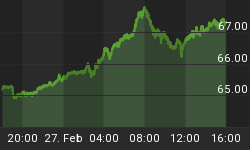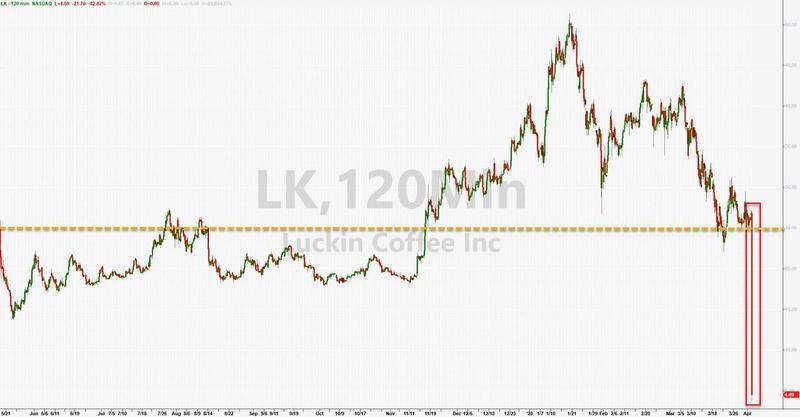Global stocks slumped on Tuesday as a safety bid appears in the dollar as Sino-US tensions continue to worsen.
There were a couple of significant developments in the overnight session involving China and the US. First, Chinese Foreign Ministry spokesman Zhao Lijian said Beijing would sanction US defense contractor Lockheed Martin for its latest arms deal with Chinese-claimed Taiwan.
The second development is from Reuters, detailing how the Trump administration plans to abandon a 2013 agreement between the US and Chinese auditing authorities, a move that suggests a widespread crackdown on US-Listed Chinese firms sidestepping US disclosure rules is ahead.
But PCAOB has complained over the years that many of the requests into Chinese firms were ignored.
Keith Krach, the undersecretary for economic growth, energy, and the environment, said, "lack of transparency has prompted administration officials to lay the groundwork to exit the deal soon."
"The action is imminent," Krach told Reuters, in an emailed response on Monday. "This is a National Security issue because we cannot continue to afford to put American shareholders at risk, to put American companies at a disadvantage and allow our preeminence of being the gold standard for financial markets to erode."
Reuters notes an official within the Trump administration and three former White House officials said the termination of the 2013 auditing deal was under careful consideration.
There's been very little information about withdrawing from the agreement - the discussions so far point to increasing frustrations by the Trump administration over Chinese companies failing to disclose critical financial data.
And maybe the Trump administration has a point, due mostly because in April, Chinese company Luckin Coffee, trading on the Nasdaq, crashed 85% in one day over allegations it fabricated $300 million sales.
The Trump administration has recently pressured pension funds for federal employees to stop investing in Chinese companies for risks that could result in malinvestment - such as what happened to Luckin Coffee.
In June, President Trump demanded the Securities and Exchange Commission (SEC) and PCAOB to recommend new measures within 60 days to protect investors "from the failure of the Chinese government to allow PCAOB-registered audit firms to comply with United States securities laws."
The Republican-led Senate has passed a bill if approved by the Democratic-led House of Representatives and signed into law would prevent any foreign entity from listing stock on US exchanges unless they had three years of consecutive audits that meet PCAOB standards. Related: COVID-19 Is A Hacker’s Paradise
Republican Senator Marco Rubio, a China hardliner and sanctioned by the Chinese government on Monday for his involvement over sanctioning Chinese officials last week for their human rights abuses against minority Uighur Muslims, described the move as "long overdue" and said more measures are needed.
"In addition to terminating this MOU [Memorandum of understanding], which allows Chinese companies to openly defy USS laws and regulations for financial transparency and accountability, we must address the Chinese Communist Party's exploitation of USS capital markets, which is a clear and ongoing risk to USS economic and national security," Rubio said in a statement to Reuters.
Hayman Capital's Kyle Bass said, "The MOU represents a gaping hole in US investor protections while providing the framework for systemic Chinese fraud," adding that, "It's unconscionable that the United States continues to allow Chinese companies raising trillions of dollars from US investors to avoid complying with basic USS securities and audit standards."
Simmering Sino-US tensions could derail the rally in global stocks as the US appears to kick financial decoupling with China into overdrive ahead of elections.
By Zerohedge.com
More Top Reads From Safehaven.com:

















